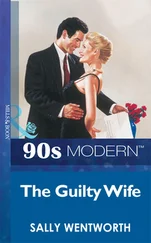Tonight, though, as she waited for her guardian, she was too distracted and tense to concentrate on her latest novel, Leonore, Jeune Fille. And when she finally heard Uncle Horace’s key grating in the lock, she jumped in alarm.
Fearfully she listened to her uncle’s progress through the house. She could hear him hanging his overcoat on the tree by the front door. He paused by the table in the foyer to look through the mail. She thought he might turn into the sitting room to read the paper, but after a pause, during which she could imagine him scanning the headlines, his footsteps continued to the stairs.
The heavy clump of shod feet on the risers sounded as if they were produced by a large man. Though relatively tall, Mr. Carstairs was not heavyset, but lean and lanky. His shoulders were narrow, his face, with its pursed lips, pinched nose and close-set eyes, long and thin. Yet his slow, heavy steps up the stairwell seemed almost to shake the house with their weight.
Marianne stiffened, the book in her hands entirely forgotten. If all had gone well tonight Uncle Horace would continue down the hall to his room, and she could finally undress and go to bed. But if he had lost, he would kick the door open and would be upon her before she could assume a position of defense. The amount of abuse she would suffer—the shouts of rage, the blows to her face and bodywould depend on the size of his losses.
His steps neared her door and slowed. Her green eyes opened wide; her breathing grew shallow and almost stopped. “Go on, go on,” she whispered, as he stopped and turned to her door. She sucked in her breath and held it, waiting for his boot to hit the thin panel that separated them.
Instead, there was a soft tap at her door.
Surprised, she released the breath she had been holding. “Come in,” she said.
The door opened slowly. Uncle Horace peeked carefully around the corner, for all the world as if he were making sure she was decent. Such a concern had never suggested itself to him before.
“You are still up,” he said.
“I am,” she replied.
“You were unable to sleep?”
“No, I was waiting…” Her voice trailed away to silence.
“Waiting? For me? I am touched, Marianne.”
She did not reply.
“I have been reviewing our situation here,” he continued when the brief pause indicated the girl was not going to speak. “You know that I am ill suited to raise a young woman, and I suspect you have not been happy here, alone so often, with no young people for companions, no chance to socialize. You are of an age when you should be socializing.”
The girl shifted her feet uncomfortably, one toe nudging the book she had dropped when Carstairs knocked. She had pictured herself of late in situations similar to the ones Leonore, the young heroine, encountered.
“I suppose—” she began.
But the man cut her off. “Perhaps it is time we looked into a new position for you. Something with broader perspectives.” He had half turned, his voice casual, as if he were speaking the thoughts as they occurred to him, but now he peered at her from the side, studying her face.
“Another position? You sound as if I should be seeking employment. Am I seeking employment, Uncle Horace?” she asked.
“No, no. I misspoke. You misunderstood. But another house, a broader acquaintance, that is what I am suggesting.”
“I am to visit someone? An old friend of mine, perhaps?” she said.
“Not exactly,” Carstairs said, hedging.
“Then what, exactly?”
“Not an old friend of yours. A gentleman of my acquaintance. You will be leaving at the end of the week.”
“Leaving?” If Marianne sounded more surprised than saddened by Carstairs’s announcement, it was due to the fact that leaving this house had been her fondest wish since the day she had entered.
“A coach will be by to collect you on Friday morning. You must be prepared to leave by then.”
“A coach? Where am I to go?” Marianne asked, making every effort to understand the frightening man who was her guardian.
“The gentleman has a private estate outside of Reading. I believe he intends for you to stay there.”
“I am to leave London?”
“It is not far,” Carstairs told her. “And you will doubtless be returning in a few weeks.”
Horace Carstairs was embarrassed to admit that until tonight he had never seen the possibilities Marianne presented. She was a fresh young girl, as far as he knew, a virgin. When Desmond was finished with her, Carstairs could sell her services again.
Surprisingly, especially if one knew Carstairs and the depths to which he was willing to descend in the name of business, that had not been his intention when he offered Marianne to the gentleman. He had honestly expected to win when he wrote his little IOU. He’d had three jacks and two twos. A full house would have won any of the other hands all night long. But it did not win that hand, and consequently Carstairs had finally realized the practical value Marianne represented.
“You need not worry about me,” Marianne said, in response to his promise she would soon be returning to him. “I will stay away as long as you like.”
“We shall see how things turn out,” Carstairs said.
“And who is this person I am to visit?” Marianne asked, at last coming to the question of most pressing interest.
But her guardian shook his head and shrugged his shoulders. “You do not know him,” he said.
“A philanthropic gentleman.” It was not a question. To Marianne it was an obvious statement of fact that any man who would take her away from Uncle Horace was a philanthropist.
But the next morning, when Marianne arose, she learned that Mr. Carstairs had left very early for Barnet, to collect on a loan.
She was confused and alarmed. Uncle Horace had left without telling her anything about her new placement or the situation facing her. When Bette first informed her of Mr. Carstairs’s unannounced business trip, the girl was not at all certain she had not dreamed the episode of the night before. It had gotten late, and perhaps she had fallen asleep. In her uncomfortable position at the foot of her bed she must have had a particularly vivid dream.
A letter arrived with the four o’clock post, though, which confirmed her flickering memory.
Miss Trenton,
Your guardian has by now, I am sure, informed you of your approaching relocation. I am looking forward to meeting you. My man will be there at seven o’clock Friday morning. The drive to Kingsbrook will take the better part of the day, so you will have to make an early start. Until then, je suis le tiens, ma biche.
P. Desmond.
Marianne, having quit her schooling after only a few French lessons, did not know Mr. Desmond had called her “his fawn,” nor did she realize how indecently familiar the gentleman had been in his concluding sentence.
She rose with the sun on Friday morning and was dressed to greet Mr. Desmond’s coachman when he rang the bell, a little before seven o’clock.
As Mr. Desmond had said in his letter, the trip to his home and lands outside of Reading took all of that morning and most of the afternoon. The day was unseasonably hot for so early in the summer. By eight o’clock Marianne regretted that she had chosen her three-piece ensemble, which required the jacket to look complete.
They stopped at a little roadside tavern for lunch. As always, Marianne’s finances were meager, and she was not sure she could afford to buy even the plainest meal on the menu. She was relieved, touched even, when the coachman produced two pound notes and told her Mr. Desmond had sent them, for any expenses she might incur along the way.
She therefore enjoyed her meal immensely, even drinking a glass of wine, and as a result was able to sleep very comfortably in the jogging, sweltering coach for the remainder of the journey.
Читать дальше












